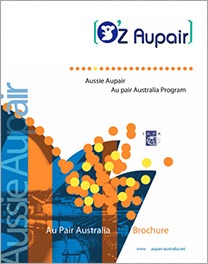Au Pair vs. Australian Nanny:
Understanding the Key Differences
Introduction:
When it comes to finding reliable and nurturing childcare options in Australia, families often consider both au pairs and Australian nannies. While both provide valuable support in caring for children, there are distinct differences between the two. Understanding these differences can help parents make an informed decision based on their specific needs and preferences. In this article, we will explore the disparities between au pairs and Australian nannies, including their roles, qualifications, cultural aspects, and legal considerations.
Definitions and Roles:
An au pair is a young person, usually from a foreign country, who lives with a host family in Australia and provides childcare assistance in exchange for room, board, and a stipend. They typically participate in a cultural exchange program, fostering language and cultural learning between the au pair and the host family. An Australian nanny, on the other hand, is a professional caregiver employed by a family to provide childcare services in their home, without the cultural exchange component.
Cultural Exchange and Language Acquisition:
Au pairs offer a unique opportunity for cultural exchange and language acquisition. They bring their own language, customs, and traditions, allowing children to gain exposure to different cultures. Australian nannies, while skilled caregivers, do not typically provide this cultural exchange experience.
Duration of Stay:
Au pairs in Australia usually commit to a cultural exchange program for a specific period, often ranging from six months to a year, with the possibility of extension. Australian nannies, on the other hand, can be employed on a long-term or short-term basis, depending on the family’s needs and the nanny’s availability.
Qualifications and Experience:
Australian nannies often have formal qualifications or certifications in early childhood education or related fields. They may hold diplomas or degrees in childcare, demonstrating their professional expertise. Au pairs, while not necessarily having formal qualifications, must have some experience in childcare to be accepted by our agency and undergo screening processes to ensure their suitability for the program.
Childcare Responsibilities:
Both au pairs and Australian nannies are responsible for the well-being of children under their care. However, the scope of their duties can differ. Au pairs primarily focus on childcare-related tasks, such as playing, supervising, and engaging children in activities. Our Au pairs, in addition to childcare, may also be responsible for meal preparation, educational support, transportation, and housekeeping tasks.
Legal Considerations:
Hosting an au pair in Australia involves adhering to specific regulations set by the Department of Home Affairs. These regulations include ensuring that the au pair holds the appropriate visa and complying with program guidelines. Hiring an Australian nanny may involve employment contracts, fair wage negotiations, and adherence to workplace laws applicable in the state or territory.
Cost and Financial Considerations:
Au pairs in Australia generally receive room, board, and a modest stipend from the host family, which makes them a more cost-effective option compared to Australian nannies. Nannies, on the other hand, require regular salaries, often based on hourly rates or negotiated monthly payments. It’s essential to consider the financial implications and additional expenses associated with hosting an au pair, such as program fees and travel costs.
Conclusion:
Choosing between an au pair and an Australian nanny depends on factors like the desire for a cultural exchange experience, specific qualifications, language acquisition, and financial considerations. Au pairs provide a unique opportunity for cultural immersion and language exposure, while Australian nannies offer professional expertise in childcare. By carefully evaluating these differences and considering their individual needs, families can make an informed decision that ensures the well-being and development of their children.

